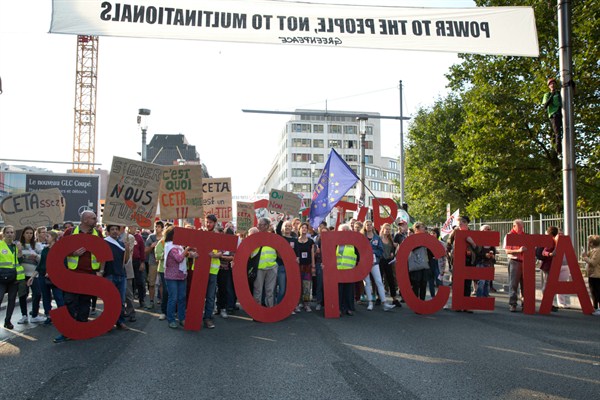On Oct. 30, the European Union and Canada finally signed a free trade deal that was delayed after Belgium’s majority French-speaking region of Wallonia threatened to veto it. But the last-minute drama behind the Canada-EU Comprehensive Economic and Trade Agreement, or CETA, has many observers doubting the future of the EU’s free trade policy.
Two weeks before the trade deal was due to be signed, the Walloon parliament, one of five regional parliaments in Belgium, vetoed it, blocking Prime Minister Charles Michel from signing the agreement. Walloon President Paul Magnette, who represents a population of just 3.5 million, objected to the deal on the grounds that there was too little debate over free trade and the negative impacts of globalization, despite the fact that CETA had been negotiated over the past seven years.
Magnette claims that the agreement will weaken health and environmental standards and give multinational corporations too much power to sue governments. The investor-state mechanism for resolving disputes was one of the most controversial aspects of CETA in Wallonia and across Europe.

